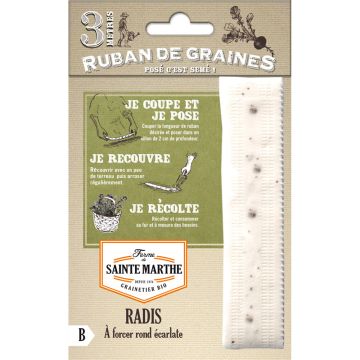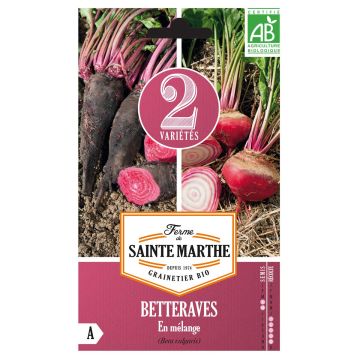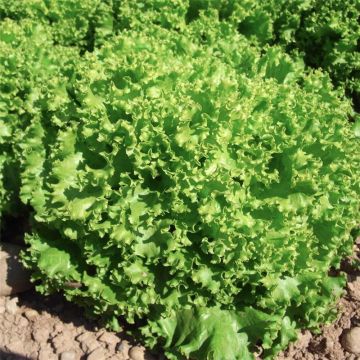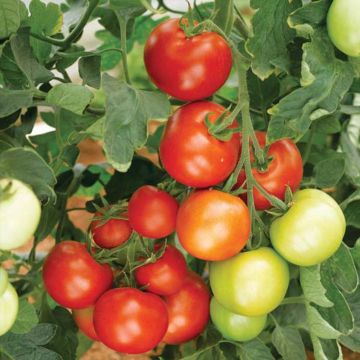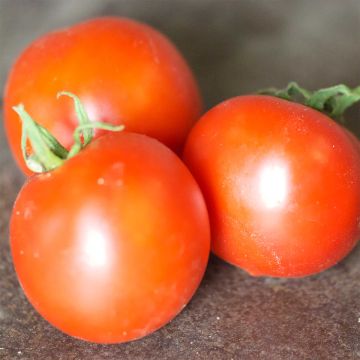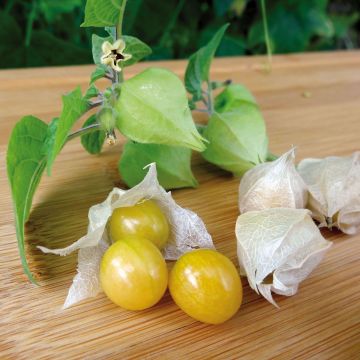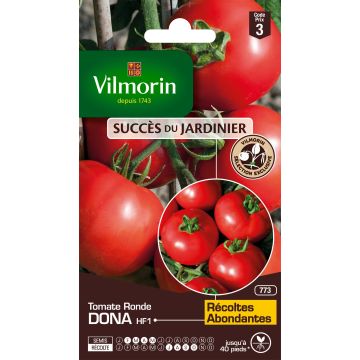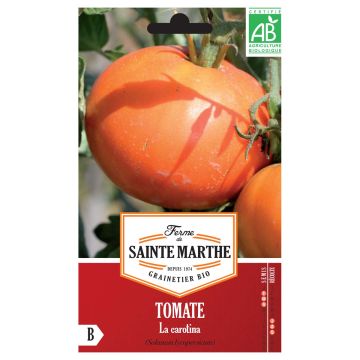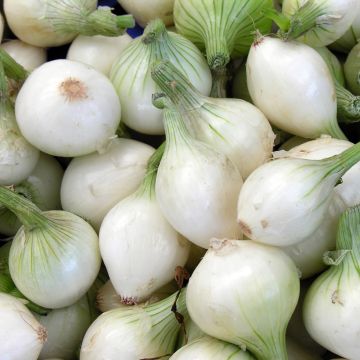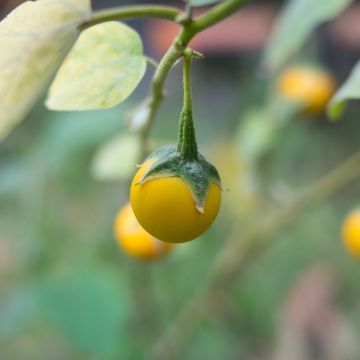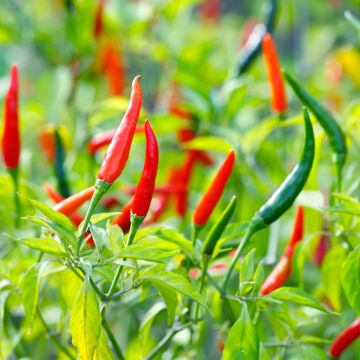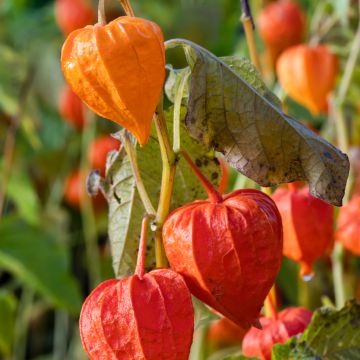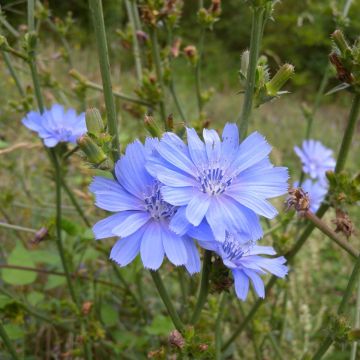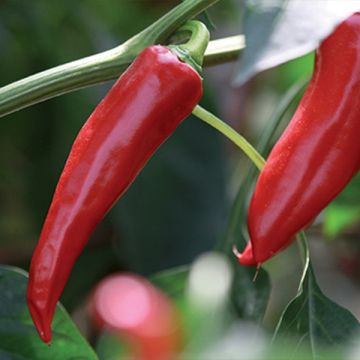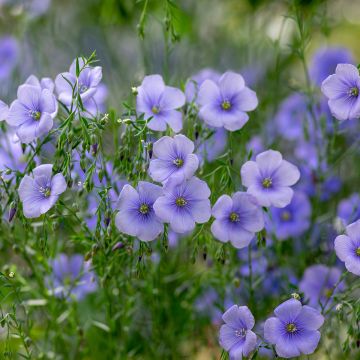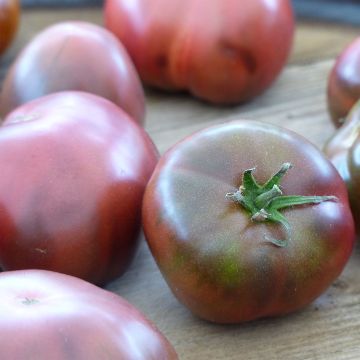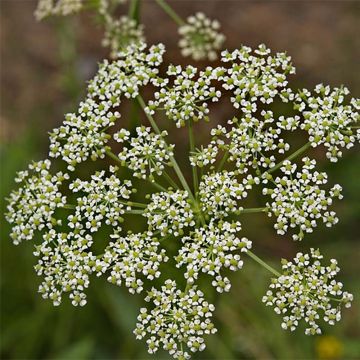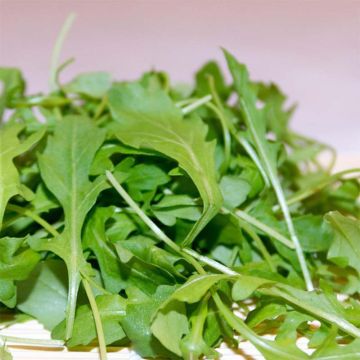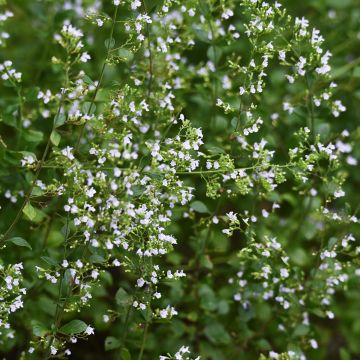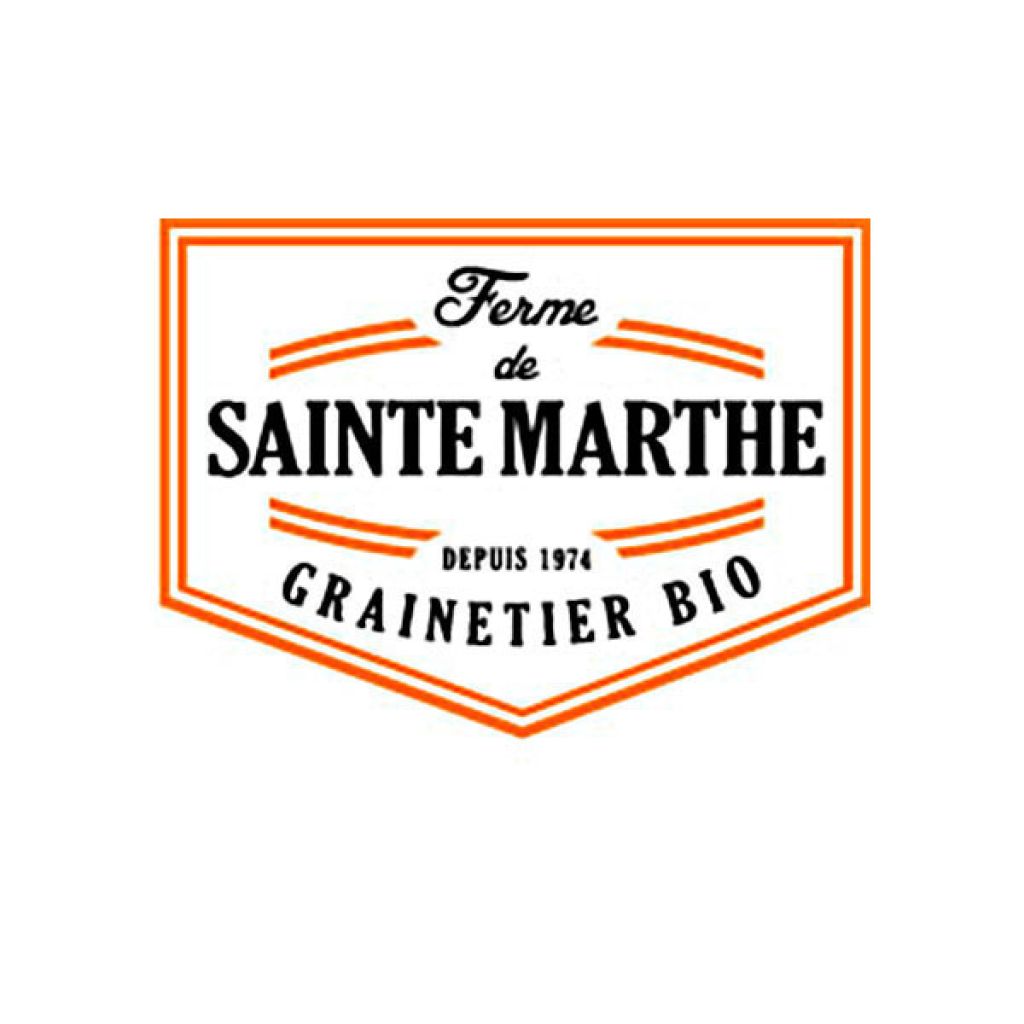

Lentille Anicia Bio - Ferme de Sainte Marthe
Lens culinaris 'Anicia'
Lens culinaris Anicia
Lentil, Garden Lentil
This item cannot be shipped to the selected country
Dispatch by letter from €3.90
More information
Schedule delivery date,
and select date in basket
This plant carries a 6 months recovery warranty
More information
We guarantee the quality of our plants for a full growing cycle, and will replace at our expense any plant that fails to recover under normal climatic and planting conditions.
Seed-only orders are dispatched by sealed envelope. The delivery charge for seed-only orders is €3.90.
Description
The 'Anicia' Lentil is the variety of lentil cultivated for the PDO Lentil Verte du Puy and the Label Rouge Lentil du Berry. Its cultivation is easy and does not require fertilization. It is resistant to frost but sensitive to prolonged drought. Its seeds are pale green, speckled and marbled with dark green. Sow from February to June, harvest from July to September.
Lentils have been cultivated since ancient times for their seeds, which are very rich in protein. They also provide minerals, including iron, and fibre. Consumed with cereals, legumes provide a nearly balanced diet, perfect for a vegetarian diet. They are the basis of many traditional dishes, from Europe to India, from lentils with salt pork to Dal. They can be consumed in soups, salads, purees, as an accompaniment to dishes...
Legumes (formerly known as Fabaceae) have nodules on their roots. In these structures, nitrogen-fixing bacteria live in symbiosis with the plant. It is through this mechanism that these plants obtain the nitrogen necessary for the production of their proteins. It is therefore completely unnecessary and discouraged to fertilize these plants.
Harvest: it is done in dry weather conditions, as soon as the first lentils are dry and before they fall off. Place the lentils that are not yet dry in the sun.
Storage: lentils are stored in closed bags or jars.
The gardener's little tip: lentils make a very good precursor for demanding cultivation, due to their nitrogen-fixing abilities. You can also associate them with corn, which will serve as a support. However, be careful, lentils are quite sensitive to competition.
Organic or "AB" seeds come from plants grown in organic agriculture (without the use of pesticides). They undergo no treatment after harvesting. These seeds are suitable for organic market gardening.
Report an error about the product description
Harvest
Plant habit
Foliage
Botanical data
Lens
culinaris
Anicia
Fabaceae
Lentil, Garden Lentil
Caucasus
Annual
Other Vegetable seeds from A to Z
Planting and care
Sowing
Soil preparation is important. Loosen the surface soil before sowing.
Sowing takes place indoors from February to mid-April, then in open fields. Sow in holes of 4 to 5 seeds. Space them 25 to 30cm (10 to 12in) apart in all directions. Thin out, keeping only the strongest plants. Transplant your early sowings into open ground in May.
Maintenance
Do not fertilize the soil, neither before nor during cultivation. Lack of water is quickly felt. Water during prolonged dry periods. Be careful of excess water, as it can harm the crop. Prone to competition, do not let weeds establish. Mulching will be very useful.
Seedlings
Care
Intended location
-
, onOrder confirmed
Reply from on Promesse de fleurs
Vegetable seeds
Haven't found what you were looking for?
Hardiness is the lowest winter temperature a plant can endure without suffering serious damage or even dying. However, hardiness is affected by location (a sheltered area, such as a patio), protection (winter cover) and soil type (hardiness is improved by well-drained soil).

Photo Sharing Terms & Conditions
In order to encourage gardeners to interact and share their experiences, Promesse de fleurs offers various media enabling content to be uploaded onto its Site - in particular via the ‘Photo sharing’ module.
The User agrees to refrain from:
- Posting any content that is illegal, prejudicial, insulting, racist, inciteful to hatred, revisionist, contrary to public decency, that infringes on privacy or on the privacy rights of third parties, in particular the publicity rights of persons and goods, intellectual property rights, or the right to privacy.
- Submitting content on behalf of a third party;
- Impersonate the identity of a third party and/or publish any personal information about a third party;
In general, the User undertakes to refrain from any unethical behaviour.
All Content (in particular text, comments, files, images, photos, videos, creative works, etc.), which may be subject to property or intellectual property rights, image or other private rights, shall remain the property of the User, subject to the limited rights granted by the terms of the licence granted by Promesse de fleurs as stated below. Users are at liberty to publish or not to publish such Content on the Site, notably via the ‘Photo Sharing’ facility, and accept that this Content shall be made public and freely accessible, notably on the Internet.
Users further acknowledge, undertake to have ,and guarantee that they hold all necessary rights and permissions to publish such material on the Site, in particular with regard to the legislation in force pertaining to any privacy, property, intellectual property, image, or contractual rights, or rights of any other nature. By publishing such Content on the Site, Users acknowledge accepting full liability as publishers of the Content within the meaning of the law, and grant Promesse de fleurs, free of charge, an inclusive, worldwide licence for the said Content for the entire duration of its publication, including all reproduction, representation, up/downloading, displaying, performing, transmission, and storage rights.
Users also grant permission for their name to be linked to the Content and accept that this link may not always be made available.
By engaging in posting material, Users consent to their Content becoming automatically accessible on the Internet, in particular on other sites and/or blogs and/or web pages of the Promesse de fleurs site, including in particular social pages and the Promesse de fleurs catalogue.
Users may secure the removal of entrusted content free of charge by issuing a simple request via our contact form.
The flowering period indicated on our website applies to countries and regions located in USDA zone 8 (France, the United Kingdom, Ireland, the Netherlands, etc.)
It will vary according to where you live:
- In zones 9 to 10 (Italy, Spain, Greece, etc.), flowering will occur about 2 to 4 weeks earlier.
- In zones 6 to 7 (Germany, Poland, Slovenia, and lower mountainous regions), flowering will be delayed by 2 to 3 weeks.
- In zone 5 (Central Europe, Scandinavia), blooming will be delayed by 3 to 5 weeks.
In temperate climates, pruning of spring-flowering shrubs (forsythia, spireas, etc.) should be done just after flowering.
Pruning of summer-flowering shrubs (Indian Lilac, Perovskia, etc.) can be done in winter or spring.
In cold regions as well as with frost-sensitive plants, avoid pruning too early when severe frosts may still occur.
The planting period indicated on our website applies to countries and regions located in USDA zone 8 (France, United Kingdom, Ireland, Netherlands).
It will vary according to where you live:
- In Mediterranean zones (Marseille, Madrid, Milan, etc.), autumn and winter are the best planting periods.
- In continental zones (Strasbourg, Munich, Vienna, etc.), delay planting by 2 to 3 weeks in spring and bring it forward by 2 to 4 weeks in autumn.
- In mountainous regions (the Alps, Pyrenees, Carpathians, etc.), it is best to plant in late spring (May-June) or late summer (August-September).
The harvesting period indicated on our website applies to countries and regions in USDA zone 8 (France, England, Ireland, the Netherlands).
In colder areas (Scandinavia, Poland, Austria...) fruit and vegetable harvests are likely to be delayed by 3-4 weeks.
In warmer areas (Italy, Spain, Greece, etc.), harvesting will probably take place earlier, depending on weather conditions.
The sowing periods indicated on our website apply to countries and regions within USDA Zone 8 (France, UK, Ireland, Netherlands).
In colder areas (Scandinavia, Poland, Austria...), delay any outdoor sowing by 3-4 weeks, or sow under glass.
In warmer climes (Italy, Spain, Greece, etc.), bring outdoor sowing forward by a few weeks.


































